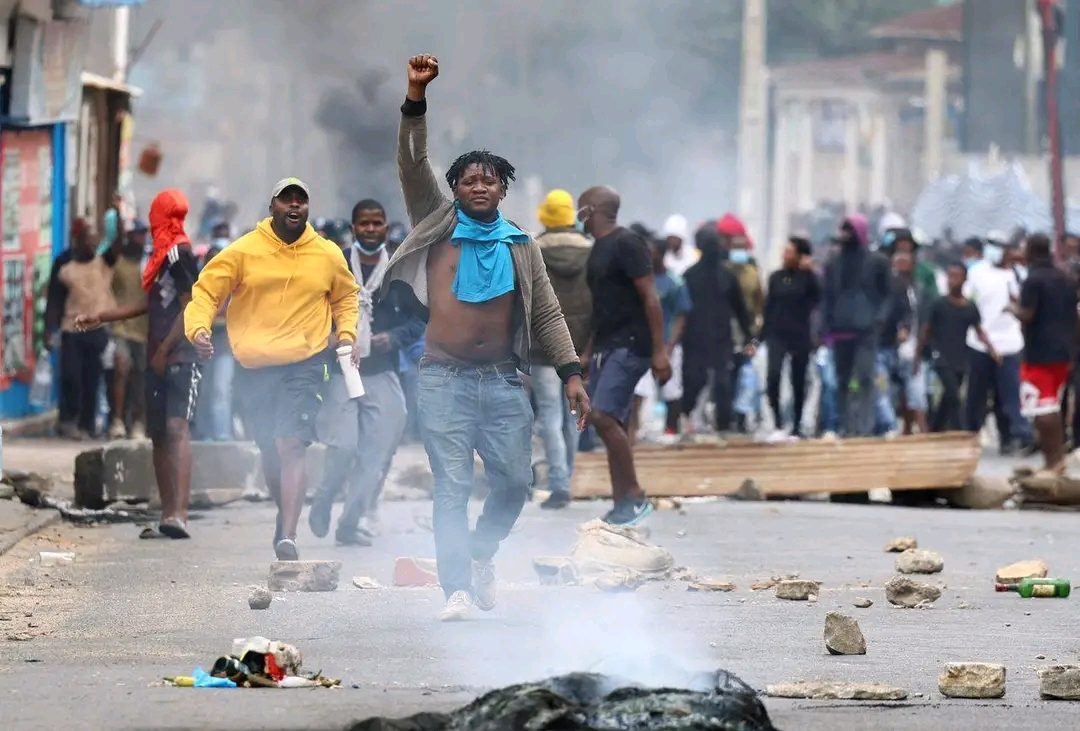By Twink Jones Gadama
The recent turmoil in Mozambique following the controversial declaration of Frelimo’s leader as the winner of the elections serves as a stark reminder of the fragility of democracy in the region. The ensuing violence, characterized by massive killings and looting, has raised alarm bells not only within Mozambique but also across neighboring countries, particularly Malawi, which is set to hold its own elections next year. As Malawi prepares for this critical democratic exercise, it is imperative that the Malawi Electoral Commission (MEC) takes proactive measures to prevent a similar crisis from unfolding. The lessons from Mozambique’s electoral debacle can guide Malawi in fostering a transparent, credible, and peaceful electoral process.
First and foremost, the MEC must prioritize transparency in the electoral process. The allegations of vote rigging in Mozambique highlight the dangers of a lack of transparency, which can breed distrust among the electorate. To counter this, the MEC should ensure that all electoral processes, from voter registration to vote counting, are conducted in an open and accountable manner. This includes making information readily available to the public, such as the criteria for voter registration, the logistics of the voting process, and the methods used for counting votes. By fostering an environment of transparency, the MEC can build trust among voters and mitigate the potential for unrest.
Moreover, the MEC should engage in extensive public education campaigns to inform citizens about their rights and the electoral process. Many voters in Mozambique were likely unaware of the mechanisms in place to challenge electoral outcomes, which contributed to the escalation of violence. In Malawi, the MEC can take proactive steps to educate the public about the electoral process, including how to report irregularities and the channels available for addressing grievances. This empowerment of the electorate can help to create a more informed citizenry that is less likely to resort to violence in the face of perceived injustices.
Another critical lesson from Mozambique is the importance of addressing electoral grievances promptly and effectively. The failure to address concerns about vote rigging and electoral malpractice in Mozambique led to widespread discontent and violence. In Malawi, the MEC must establish clear and accessible mechanisms for voters to lodge complaints and seek redress. This could involve setting up independent electoral tribunals or panels that can investigate allegations of misconduct swiftly and impartially. By demonstrating a commitment to addressing grievances, the MEC can help to defuse tensions and prevent the escalation of conflicts.
Furthermore, the MEC should prioritize the integrity of the voter registration process. In Mozambique, allegations of irregularities in voter registration contributed to the perception of a rigged electoral process. To avoid similar pitfalls, the MEC must ensure that the voter registration process is inclusive, fair, and transparent. This includes conducting regular audits of the voter roll, allowing for public scrutiny, and ensuring that all eligible citizens have the opportunity to register. By maintaining the integrity of the voter registration process, the MEC can help to build confidence in the electoral system and reduce the likelihood of disputes.
Collaboration with civil society organizations and international observers is another crucial aspect of ensuring a peaceful electoral process. In Mozambique, the lack of independent oversight contributed to the perception of a flawed electoral process. The MEC should actively engage with local and international organizations to monitor the elections and provide independent assessments of the electoral process. This collaboration can enhance the credibility of the elections and provide an additional layer of accountability. Furthermore, civil society organizations can play a vital role in educating voters and promoting peaceful electoral participation.
The role of political parties in the electoral process cannot be overlooked. In Mozambique, the failure of political leaders to address the concerns of their constituents contributed to the unrest. In Malawi, political parties must be encouraged to engage in constructive dialogue and to commit to peaceful electoral practices. The MEC can facilitate this by organizing forums for political parties to discuss their concerns and to develop a shared commitment to upholding democratic principles. By fostering a culture of dialogue and cooperation among political actors, the MEC can help to create a more stable electoral environment.
Additionally, the MEC should invest in technology to enhance the electoral process. The use of technology can improve the efficiency and transparency of elections, making it more difficult for fraud to occur. For instance, electronic voting systems and biometric voter registration can help to ensure that only eligible voters participate in the elections. However, it is essential that the implementation of technology is accompanied by adequate training for electoral officials and public awareness campaigns to ensure that voters are comfortable with the new systems. By embracing technology, the MEC can modernize the electoral process and reduce the potential for disputes.
The controversy surrounding Smartmatic machines, which were rejected by Mozambican citizens due to concerns about vote manipulation, serves as a cautionary tale. In Malawi, the Electoral Commission (MEC) has already faced criticism for its decision to partner with Smartmatic, despite the company’s chequered history in other countries.
To prevent a similar fiasco, MEC must prioritize transparency and inclusivity.
This includes conducting thorough due diligence on any technology providers, ensuring that all stakeholders are consulted, and implementing robust safeguards to prevent electoral manipulation.
By doing so, MEC can help restore trust in the electoral process and ensure that Malawi’s 2025 elections are free, fair, and credible. In fact, MEC has recently announced that it will abandon the use of Smartmatic machines in favour of a manual voting system.
Finally, the MEC must work closely with law enforcement agencies to ensure that the electoral process is conducted in a safe and secure environment. The violence that erupted in Mozambique following the elections underscores the need for a coordinated approach to maintaining peace during the electoral period. The MEC should collaborate with police and security forces to develop a comprehensive security plan that addresses potential threats to the electoral process. This includes ensuring the safety of polling stations, protecting voters, and preventing any form of intimidation or violence. By prioritizing security, the MEC can help to create an environment conducive to free and fair elections.
In conclusion, the recent events in Mozambique serve as a cautionary tale for Malawi as it approaches its upcoming elections. By learning from the mistakes of its neighbor, the Malawi Electoral Commission can take proactive steps to ensure a transparent, credible, and peaceful electoral process. Prioritizing transparency, addressing grievances, maintaining the integrity of the voter registration process, collaborating with civil society, engaging political parties, embracing technology, and ensuring security are all critical components of a successful electoral framework. By implementing these measures, the MEC can help to foster a democratic environment that not only prevents the kind of violence witnessed in Mozambique but also strengthens the foundations of democracy in Malawi.




